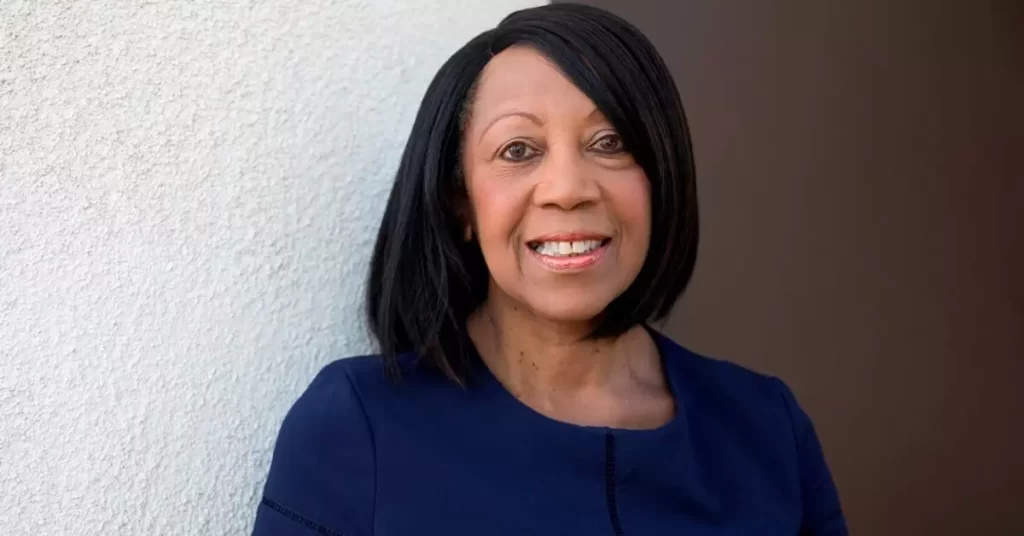Pioneering Politician Lieutenant Governor Sheila Oliver, Trailblazer and Advocate, Passes Away at 71
In a somber turn of events, Lt. Gov. Sheila Oliver, a true trailblazer in New Jersey’s political landscape, has left an indelible mark on the state’s history. Known as the first Black woman to serve as both New Jersey’s Assembly speaker and lieutenant governor, Oliver’s passing at the age of 71 has left a void that resonates far beyond the realms of politics.
The cause of her death remains undisclosed at the moment, although reports indicate she had been under medical care in recent days. Her untimely departure has cast a pall over the political arena, as well as the hearts of those who admired and respected her for her unwavering dedication and contributions.
Gov. Phil Murphy, in a poignant statement, conveyed the sorrow and loss felt by many: “It is with incredible sadness and a heavy heart that we announce the passing of the Honorable Sheila Y. Oliver, Lieutenant Governor of the State of New Jersey.” He further added, “Tammy and I, and our children, are incredibly saddened and distraught to learn of the passing of our dear friend, colleague, and partner in government.”
Oliver’s legacy is woven into the fabric of New Jersey’s political history. She shattered glass ceilings, carving a path for future generations of women and people of color. Her accomplishments were not just a testament to her individual journey, but a beacon of hope and possibility for marginalized communities.
Her ascendancy to the role of Assembly speaker was marked by groundbreaking milestones. In a state known for its diversity, Oliver’s achievement was a significant step forward in achieving equitable representation. She became the first Black woman to helm the General Assembly in New Jersey, and only the second in the entire nation to lead a state legislature.
Aptly described as a “trailblazer in every sense of the word” by Gov. Murphy, Oliver’s impact reached beyond her official duties. Serving as acting governor during Murphy’s absences, she demonstrated her capacity to lead with grace and competence, becoming a symbol of empowerment for young women and aspiring leaders.
Oliver’s journey was deeply rooted in her Newark origins. Born in the city, she embarked on a trajectory that defied societal norms and expectations. Graduating from Newark’s Weequahic High School in 1970, she went on to earn her bachelor’s degree from Lincoln University, a historically Black institution. A master’s degree from Columbia University followed, cementing her commitment to education and public service.
Her dedication led her to roles within Essex County’s political landscape, where she served on the East Orange Board of Education and later on the Essex County Board of Chosen Freeholders, which is now the Board of Commissioners.
In 2003, Oliver’s political journey reached a new pinnacle as she was elected to the Assembly. Her dedication and strategic acumen propelled her to the role of speaker in 2010. This achievement, however, was not without its challenges. Oliver’s tenure coincided with the gubernatorial tenure of Chris Christie, a time marked by contentious policy battles.
One defining moment during Oliver’s tenure as Assembly speaker was her pivotal role in marshaling votes for pension and health care benefit cuts for public employees, a move that drew both acclaim and criticism. Her ability to navigate these tumultuous waters showcased her commitment to responsible governance, even in the face of adversity.
Oliver’s influence extended to national aspirations, as she threw her hat into the ring for the Democratic primary for the U.S. Senate in 2013. Her ambitions demonstrated her unwavering determination to elevate her advocacy to a larger stage.
In 2017, Oliver’s journey took another turn as she assumed the role of lieutenant governor, after being selected as Gov. Murphy’s running mate. This milestone coincided with a growing need for diverse voices in positions of power, and her appointment aligned with a broader movement for inclusion and representation.
Sheila Oliver’s legacy is not just confined to her political accomplishments; it is a legacy of breaking barriers, amplifying voices, and advocating for meaningful change. Her passing leaves a void that cannot be easily filled, but her impact will undoubtedly continue to inspire future generations to aspire to greatness.
As New Jersey mourns the loss of a beloved leader, Acting Gov. Nicholas Scutari has ordered flags to be lowered to half-staff in her memory. The void left by her passing serves as a poignant reminder of the importance of leaders who champion progress, equality, and justice. In accordance with the state’s constitution, Gov. Murphy now has 45 days to appoint a replacement for Oliver, a decision that holds the potential to shape the trajectory of the state’s future.
Sheila Oliver’s life was one of service, of resilience, and of unwavering commitment to the ideals that make societies better. As her legacy lives on, her impact will continue to shape the course of New Jersey’s history, echoing through the halls of power and resonating in the hearts of those she touched.



